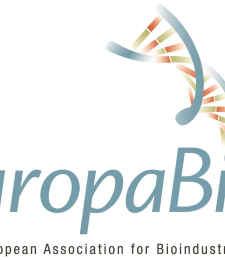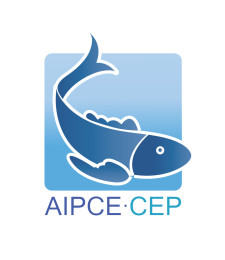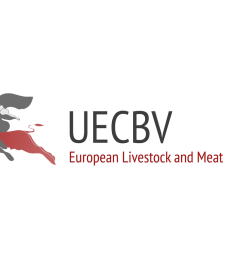Pledges
EuropaBio (2021)
Pledges

Publishing organisations:
Editorial team
Relevant countries:
Belgium
Organisation types:
Industry Associations and Chambers of Commerce
Next progression check date:
EuropaBio, the European Association for Bioindustries, promotes an innovative and dynamic European biotechnology industry. EuropaBio and its members are committed to the socially responsible use of biotechnology to improve quality of life; to prevent, diagnose, treat, and cure diseases; to improve the quality and quantity of food and feedstuffs and to move towards a bio-based and zero-waste economy. EuropaBio represents corporate and associate members, plus national biotechnology associations and bioregions.
Editorial team
Topics
Belgium
Industry Associations and Chambers of Commerce
-
CoC aspirational objectives
-
-
1. Healthy, balanced and sustainable diets for all European consumers
-
2. Prevention and reduction of food loss and waste
-
3. A climate - neutral food chain in Europe by 2050
-
4. An optimised circular and resource-efficient food chain in Europe
-
5. Sustained, inclusive and sustainable economic growth, employment and decent work for all
-
6. Sustainable value creation in the European food supply chain through partnership
-
7. Sustainable sourcing in food supply chains
-
Share
In the food and feed sector, industrial biotechnology can harness the power of microbes to develop bio-based solutions that use resources more efficiently, improving arable and livestock yields, while reducing the emissions from farming, and capturing the potential for using food waste and adding value to side streams and by-products. Industrial biotechnology can also help improve human health and nutrition, including through a better understanding of the human microbiome, the delivery of probiotics, prebiotics, and micronutrients.
Commitments by aspirational objectives:
EuropaBio signs up to the EU Code of Conduct for Responsible Food Business and Marketing Practices. By signing the Code of Conduct, EuropaBio commits to the obligations listed in the Code and pledges to:
Endorse the aspirational objectives set out in this Code (where applicable) - promote and disseminate this Code with(in) its constituencies.
Encourage their members to align their sustainability actions and/or business practices to the aspirational objectives and targets of the Code and invite them, voluntarily, to adhere to this Code, as appropriate - explore the possibility of developing sector-specific tools and resources in support of this Code.
Provide, on an annual basis, a report of their activities in support of this Code, which will be published on an open dedicated website.
Continue to engage in dialogue with other food chain/systems actors and EU and international policy-makers to forge relationships, exchange good practices and discuss challenges encountered, learn from each other (studies, projects), create better mutual understanding, and identify opportunities for collaboration and potential partnership.
Aspirational objective 1: Healthy, balanced, and sustainable diets for all European consumers, thereby contributing to:
1) Reversing malnutrition and diet-related noncommunicable diseases (NCDs) in the EU.
2) Reducing the environmental footprint of food consumption by 2030.
With the following aspirational targets:
a) Improved food consumption patterns in the EU.
b) A food environment that makes it easier to choose healthy and sustainable diets.
Aspirational objective 2: Prevention and reduction of food loss and waste (at the consumer level, within internal operations, and across value chains)
With the following aspirational target:
A 50% reduction of per capita food waste at the retail and consumer level by 2030 and reduced food losses along the food production and supply chains in the EU.
Aspirational objective 3: A climate-neutral food chain in Europe by 2050
With the following aspirational target:
Reducing net emissions from own operations, contributing to a 55% GHG emission reduction target in the EU food chain by 2030 (following a science-based approach).
Aspirational objective 4: An optimised circular and resource-efficient food chain in Europe
With the following aspirational targets:
a) Improved resource efficiency within own operations, contributing to sustainable, efficient use and management of energy and natural resources in operations by 2030.
b) Improved sustainability of food and drink packaging, striving for all packaging towards circularity by 2030.
Aspirational objective 5: Sustained, inclusive, and sustainable economic growth, employment, and decent work for all
With the following aspirational targets:
a) Improved resilience and competitiveness of companies operating at any point along the food value chain by 2030.
b) Quality jobs, skilled workforce, and safe and inclusive workplaces for all.
Aspirational objective 6: Sustainable value creation in the European food supply chain through partnership
With the following aspirational targets:
a) Improved resilience and competitiveness of companies operating at any point along the food value chain by 2030.
b) Continued progress towards sustainable production, contributing to sustainable management and efficient use of natural resources by 2030 and improved animal welfare.
Aspirational objective 7: Sustainable sourcing in food supply chains
With the following aspirational targets:
a) Transformed commodity supply chains that do not contribute to deforestation, forest degradation, and destruction of natural habitat and which preserve and protect high-value ecosystems and biodiversity.
b) Improved social performance in (global) food supply chains.
Full detail of the pledge in the provided attachment.
Documents
Comments (0)
See also
-
4
AIPCE CEP (2021)
Publishing organisations: AIPCE CEP
Relevant countries: Belgium
Organisation types: Industry Associations and Chambers of Commerce
Next progression check date:
- Categories
- 2. Prevention and reduction of food loss and waste 3. A climate - neutral food chain in Europe by 2050 4. An optimised circular and resource-efficient food chain in Europe +3 more
-
2
UECBV (2021)
Publishing organisations: UECBV
Relevant countries: Belgium
Organisation types: Industry Associations and Chambers of Commerce
Next progression check date:
- Categories
- 2. Prevention and reduction of food loss and waste 3. A climate - neutral food chain in Europe by 2050 4. An optimised circular and resource-efficient food chain in Europe +3 more
-
3
European Association of Fish Producers Organisations (2021)
Publishing organisations: European Association of Fish Producers Organisations
Relevant countries: Belgium
Organisation types: Industry Associations and Chambers of Commerce
Next progression check date:
- Categories
- 2. Prevention and reduction of food loss and waste 3. A climate - neutral food chain in Europe by 2050 4. An optimised circular and resource-efficient food chain in Europe +3 more



